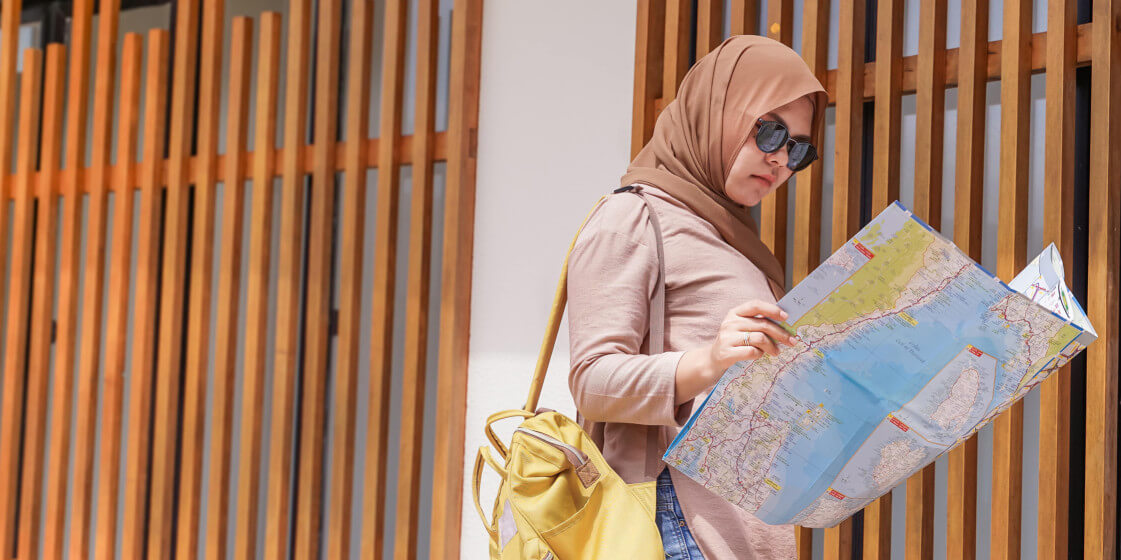‘Muslim-friendly tourism’ - ‘Islamic tourism’ - ‘Sharia tourism’ word jumble confuses travellers and planners
Up to 28 terms for Muslim-friendly travel segments can ‘mislead the public’.
KUALA LUMPUR: As Muslim tourism prepares for an anticipated return to the growth period it had experienced before the pandemic, industry planners would be advised to revise the way they approach defining and marketing it.
In the years before COVID-19, the segment had been steadily growing, assisted by product innovations such as Muslim travel apps and online travel agencies.
However, experts say that insufficient thought has gone into defining and segmenting different elements of Muslim travel, leading to confused messaging for travellers and inconsistent standards at destinations.
“Islamic tourism has only been around for two decades, yet there have been so many terms used to indicate Islamic tourism that it’s confusing not only the tourists but the marketeers,” said Ahmad Puad Mat Som, a professor of tourism at Universiti Sultan Zainal Abidin in Malaysia, at the World Islamic Tourism Conference in Kuala Lumpur on November 16.
The problem stems from how each different sub-segment of Islamic travel is defined, as there is still no universally accepted definition of these terms.
Singapore-based halal travel consultancy CrescentRating has compiled a detailed glossary of many of the services provided for Muslim travellers. The number and variety of examples on the list is extensive - as many as 28 are reported as being in common usage, and there is much cross-over.
Among them is Sharia tourism, which refers to faith-based travel and pilgrimage, such as for Hajj or Umrah to Saudi Arabia.
Then there is Islamic tourism, where travellers expect their accommodation to be fully halal (permissible), including hotels with separate swimming facilities for male and female guests, certified halal meals and no availability of alcohol.
A third, more recent category is known as Muslim-friendly travel (MFT), which has been developed and promoted as a means to encourage Muslims to travel abroad in the knowledge that at least some of their faith-based needs will be covered, such as halal food served at certain hotels and restaurants.
Malaysia’s Halal Development Corporation (HDC) has been active in urging hotels and restaurants in destinations such as Japan and Taiwan to ensure their food does not include pork or is laced with alcohol.
“The biggest problem with Islamic tourism is we have a lot of terms,” said Hafiz Hanafiah, a tourism specialist at Universiti Teknologi MARA in Kuala Lumpur. “We have MFT, Islamic tourism, Sharia tourism, and so on, and most of the time, destination marketers use these interchangeably without understanding what each one means. It seems that they have all turned into marketing concepts.”
The main issue is that this leads to the various terms not being interpreted according to Sharia principles. Hanafiah said that Islamic tourism experiences are being designed “without following the right and the just way.”
A change in how government planners approach the Islamic tourism industry would make a difference, said Ahmad Puad, such as promoting it as a standalone sector like ecotourism.
In Malaysia, rural tourism has a masterplan, but there is no such plan for Islamic tourism. The tourism ministry’s recent Islamic Tourism Policy 2020-2030 doesn’t even use the term ‘Islamic tourism’; rather ‘Muslim-friendly tourism’ is preferred.
“Imagine, this is at ministerial level! And the terms they use can sometimes mislead the public,” said Ahmad Puad. “The problem with Islamic tourism in Malaysia is that we don’t have visible products. What we are selling is services and experiences. That’s why it would be timely to have an Islamic tourism plan in addition to a tourism strategic plan.”
© SalaamGateway.com 2021 All Rights Reserved
